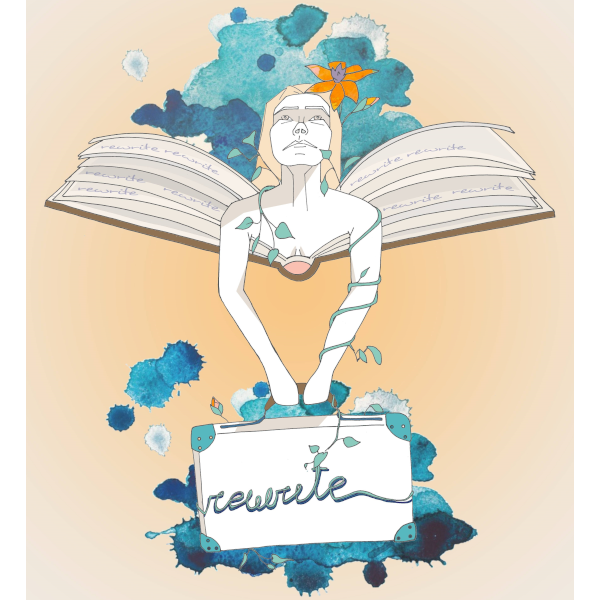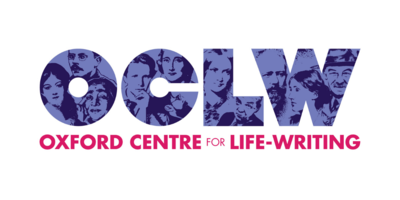Rewrite
Rewriting Migrants' Identities across Women's Literature
Overview
Female Migrants’ literature to guide the social cohesion policies
The questions of identity formation and reconstruction are crucial in today’s debate concerning migration, human rights, and gender equality policies in Europe.
The EU- funded Rewrite project will deepen our understanding of the European Pillar of Social Rights and rethink the EU’s integration and social cohesion policies. It will do this by examining migrant literary works produced by women during the last two centuries.
The project will conduct a comparative study on policies of integration and the consequences of deconstructing and reconstructing migrant-women identities.
Exploring self-reflexivity in migrant women writers of the 20th and 21st centuries, the project will identify turning points that are necessary for identity transformation.
|
|
Call for Papers [ESP] | 701 KB |
Objectives
Global objective
The project’s timeline will examine the body of migrant, exile, intercultural literature of women writers from the multidimensional analytical lens of the migratory career (as key for the identification of central turning points articulated in women’s heterogeneous biographies and in-between transformation spaces for self-realisation.
The core questions are: Which are the main dominant discourses (systemic) and experiences (individual) about race, class, gender roles, shaping migrant women identities and critical writings, linked to power/oppression relationships? Which are migrant women’s positioning and representations in-between spaces? Might be literature expression of identity construction processes in challenge of dominant writing and opinions? Rethinking identities is relevant for gender equality and social cohesion.
Rewrite aims to bridge the gap between gender-based human mobility and social change via the comparative analysis between the European integration policies and the role and impact on the simultaneous processes of identities de/reconstruction, by:
- analysing existent emblematic novels from 20th and 21st centuries focused on two main dilemmas: identity and belonging; integration and exclusion;
- creating a new body of critic women’s writings, “tradition much ignored due to the inferior position of women in male-dominated societies”, related to human mobility.
Rewrite’s aim is to become the bridge between academia, knowledge production by migrant women and life-writing as a psicosocial toll for the social change.
Producing:
- an interactive Map on Female migrant writers of the 20 th and 21 st Centuries (contents: bio and literary productions).
- publications on this subject: academic articles and an anthology;
- a series of events: conferences, screenings abd talks;
- an online Social Lab: a space for reflection, writing and re-framing personal migrants’ experiences related to the migration process, with production of storytelling and piece of writing.
The research will:
- explore the identities de/reconstruction processes in the migrant literary works produced by women during the last two centuries;
- contribute to the European Pillar of Social Rights and to rethink the European Union’s (EU) integration and social cohesion policies from an intersectional perspective;
- inquire into the self-reflexivity in migrant women writers from a critical discourse analysis, advocating for social change, which is crucial for a new understanding of the limitation of politics.
Fields of science
- social sciences, sociology, gender studies, gender equality
- social sciences, political sciences, political policies, public policies
- humanities, languages and literature, literature studies
- social sciences, sociology, demography, human migrations
Focus
Literary production of the 20th and 21st centuries on migration and displacement, exiled, refugee people’s testimonies through the autobiographical and auto-fictional life-writing, memoires and diaries.
Events
- 6-8 July, 2022 European conference on politics and gender, University of Ljubljana
- 13-15 June, 2022 10th CEISAL (Consejo Europeo de Investigaciones Sociales de América Latina) International Conference “Uncertain trajectories: Latin America after globalization”, Helsinki
|
|
6 May 2022 - International Meeting with Experts on Life-Writing in Spanish "Identidades en transito y la 'honestidad' en la autobiografia de mujeres" [ESP]
online conference in Spanish only |
678 KB |
|
|
8 March 2022 - International Women's Day (IWD) [ITA]
“8 racconti di donne migranti per l’8 marzo” (online event in Italian) |
831 KB |
Interviews
Rewrite literary café
The Rewrite Literary Café is a new space of debate and conversation on female writings and literary production written by women all over the world.
It wants to be a comfortable space addressed to the conversation with female authors. Contents are created ongoing and we discover, step by step, some little curiosities about the authors, their works, their lives, and the importance of writing and the subjective creative processes.
Coffee and culture is based on the 18th century’s idea and trend in many European cities, where intellectual entered for networking, discussions around coffee and the.
Some of the most traditional literary cafés [ESP].
|
|
Ingy Mubiayi [ITA] | 354 KB |
|
|
Margaryta Yakovenko | 400 KB |
|
|
Melina Balcazar [ESP] | 453 KB |
|
|
Nataly Villena [ESP] | 499 KB |
|
|
Sabrina Efionayi [ITA] | 405 KB |
|
|
Sonia Solarte [ESP] | 355 KB |
|
|
Tsitsi Dangarembga [ITA] | 224 KB |
|
|
Karina Sainz Borgo [ESP] | 227 KB |
Team
Maria Luisa Di Martino
Principal Investigator
Luis Fernando Beneduzi
Main Supervisor - Unive
Kate Kennedy
Secondment Supervisor - OCLW University of Oxford









